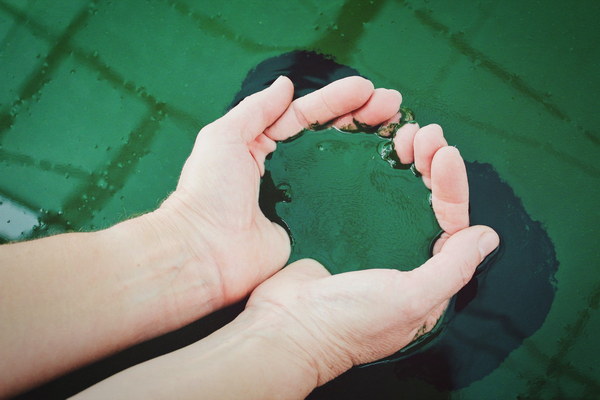How to Cleanse Your Lungs After Inhaling Large Amounts of Dust Effective Strategies and Tips
Inhaling large amounts of dust can be a concerning situation, especially if it occurs due to occupational hazards, environmental pollution, or accidents. The lungs are essential organs responsible for oxygen exchange, and when they are contaminated with dust, it can lead to respiratory problems and other health issues. This article provides you with effective strategies and tips on how to cleanse your lungs after inhaling a significant amount of dust.
1. Immediate Action
The first step after inhaling a large amount of dust is to take immediate action. Move to a dust-free environment and remove any clothing that may have been contaminated with dust. This will minimize the risk of further exposure and help in preventing dust particles from settling deeper into your lungs.
2. Thorough Breathing Exercises
Engage in deep breathing exercises to help expel dust particles from your lungs. Here are a few exercises you can try:

a. Deep Breathing: Inhale slowly through your nose, filling your lungs with air. Hold your breath for a few seconds, then exhale slowly through your mouth. Repeat this process for several minutes.
b. pursed-lip breathing: Breathe in deeply through your nose and exhale through pursed lips, as if you were whistling. This technique helps to increase lung capacity and promote the expulsion of dust particles.
c. Diaphragmatic breathing: Lie on your back with your knees bent and feet flat on the ground. Place one hand on your chest and the other on your abdomen. Inhale deeply, allowing your abdomen to rise, then exhale while pressing gently on your abdomen to help expel air.
3. Steam Therapy
Steam therapy can help to loosen and expel dust particles from your lungs. Fill a bowl with hot water and add a few drops of essential oils like eucalyptus, peppermint, or menthol. Lean over the bowl and drape a towel over your head, inhaling the steam for several minutes.
4. Herbs and Supplements
Certain herbs and supplements can support lung function and help in clearing out dust particles. Here are a few options:
a. Turmeric: This spice contains curcumin, which has anti-inflammatory properties and can help in reducing lung inflammation.
b. N-acetyl cysteine (NAC): This supplement helps to break down mucus and can be effective in clearing out dust particles from the lungs.
c. Vitamin C: This vitamin has antioxidant properties and can help in reducing lung inflammation.
5. Rest and Hydration
Give your body time to rest and recover. Ensure you are well-hydrated by drinking plenty of water, as it can help in flushing out toxins and promoting lung health.
6. Regular Medical Check-ups
If you have been exposed to a large amount of dust, it's crucial to consult a healthcare professional. They can provide a thorough examination and recommend appropriate treatments or medications if necessary.
7. Preventive Measures
To avoid future exposure to dust and protect your lungs, take the following preventive measures:
a. Use masks: When working in dusty environments, wear appropriate masks to prevent dust inhalation.
b. Ventilation: Ensure proper ventilation in areas where dust is present.
c. Regular cleaning: Keep your living and working spaces clean to minimize dust accumulation.
In conclusion, inhaling large amounts of dust can be harmful to your lungs, but by taking immediate action, engaging in deep breathing exercises, using steam therapy, and incorporating herbs and supplements, you can help cleanse your lungs. Regular medical check-ups and preventive measures are also essential in maintaining lung health.









